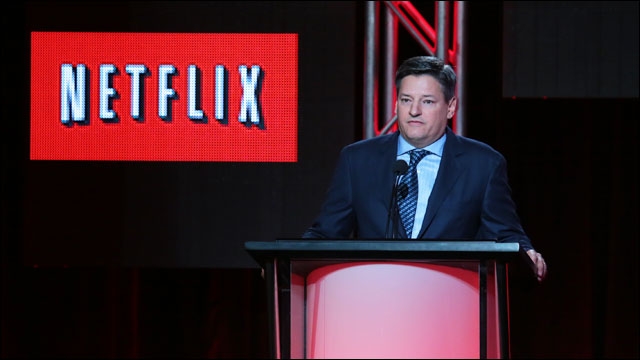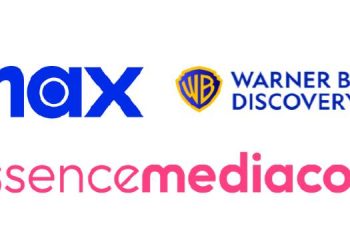
The reliance of TV networks on ratings to gauge the success or failure of their shows has been bad for creators of high-quality television programming, according to Netflix chief content officer Ted Sarandos,
“Look how many shows didn’t get past the first three episodes,” said Sarandos, speaking Monday at the UBS Global Media & Communications Conference in New York. “Not because they were a bad show… but because it was in the wrong slot at the wrong time.”
The reason Netflix doesn’t provide ratings figures is “not because we’re trying to frustrate the press” or “squeeze suppliers,” the exec said, but because the company is not an ad-supported service and “I honestly believe it works against quality television.” He noted that “Seinfeld” on NBC didn’t become a hit show until after four years on the air.
Last month, Nielsen said it would provide viewing metrics for Netflix’s and Amazon’s subscription VOD services, although initially the firm will only let companies see SVOD viewing information for their own content. Nielsen also won’t measure Netflix viewing on computers or mobile devices at first.
Asked about the Nielsen plans to measure SVOD, Sarandos quipped, “I hope you have all the confidence in that number as you do in their current tracking,” alluding to past errors in TV ratings measurement service from Nielsen.
Meanwhile, Sarandos also said cable operators haven’t kept pace with shifting consumer habits by failing to invest in dynamic advertising tech, which would let them better cater to viewer preferences for the on-demand model. “People like watching all episodes (of a show) in one sitting… instead of waiting a whole season to watch them on cable,” he said.
Cable TV needs to “fix the root of the problem,” to let advertisers serve ads dynamically, so that VOD services will be able to support the delivery of television shows in an on-demand fashion.
Netflix’s model has appealed to writers and showrunners, because the SVOD company gives them a level of creative freedom that many networks don’t, Sarandos said. On the other hand, Netflix requires that the content come to us “better developed” than it would have if it were going to a traditional TV network, he said.
Currently, Netflix is various stages of producing nine original series, including Marvel’s “Daredevil” under a pact that will also bring live-action series based on three other “street hero” characters to Netflix. “Daredevil,” which Sarandos called “cinematic” and “dark,” is shooting right now in Brooklyn. The exec praised British actor Charlie Cox, who stars as the title character, and said Vincent D’Onofrio is “one of the best supervillains you’ll ever see.”
Within five years, Netflix wants to be available in virtually every country in the world, Sarandos said. The company by that point expects to debut as many as 20 original TV series annually, or about one every 2.5 weeks, “kind of getting into a regular drumbeat” for subscribers to expect original programming on the service, he said.
Netflix is now hoping to shake up the movie business the way it’s disrupted TV. The company is now competing with studios for talent, Sarandos said, citing Netflix’s deal with Adam Sandler to develop four exclusive movies.
The motivation to get into original movies was driven by the high price of pay-TV output deals from studios, according to Sarandos. He said that instead of paying $1 billion over three years for an output deal, Netflix is now looking at spending a portion of that to produce its own films with the same stars and directors who would have worked on those films.
In licensing content, Netflix has an advantage in approaching studios by offering a global footprint of 50 countries. Sarandos cited the company’s recent deal with Warner Bros. Television to license the first season of Batman origin series “Gotham” worldwide, before it had premiered on U.S. television. “That means there are 50 buyers around the world that would have liked to be in the mix,” he said.
Internationally, limited access to U.S.-produced shows with worldwide name recognition and buzz has resulted in piracy, Sarandos said. “In the Nordics they were two years behind on ‘The Walking Dead,’” he said. In a country with high-speed Internet access, consumers who want to watch a hot show that’s not available through legal channels are “going to steal it.”
Also at the UBS conference, Sarandos said he doesn’t anticipate Netflix tiering its pricing plans based on different levels of content. Currently, Netflix charges differently monthly prices based on number of simultaneous streams viewed and access to content in 4K UltraHD format.
“It’s tough to tier by content… people value content differently,” he said.

















